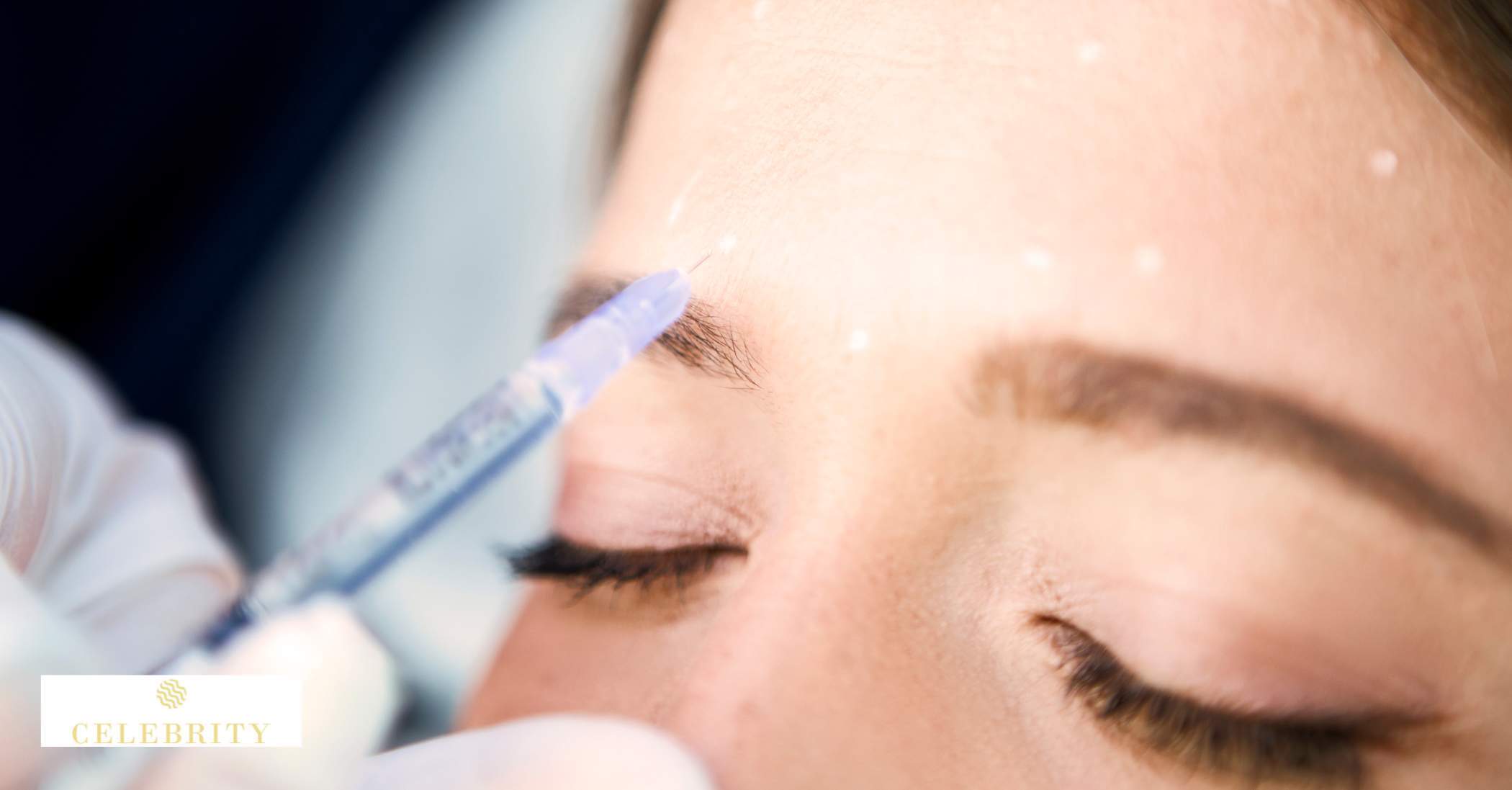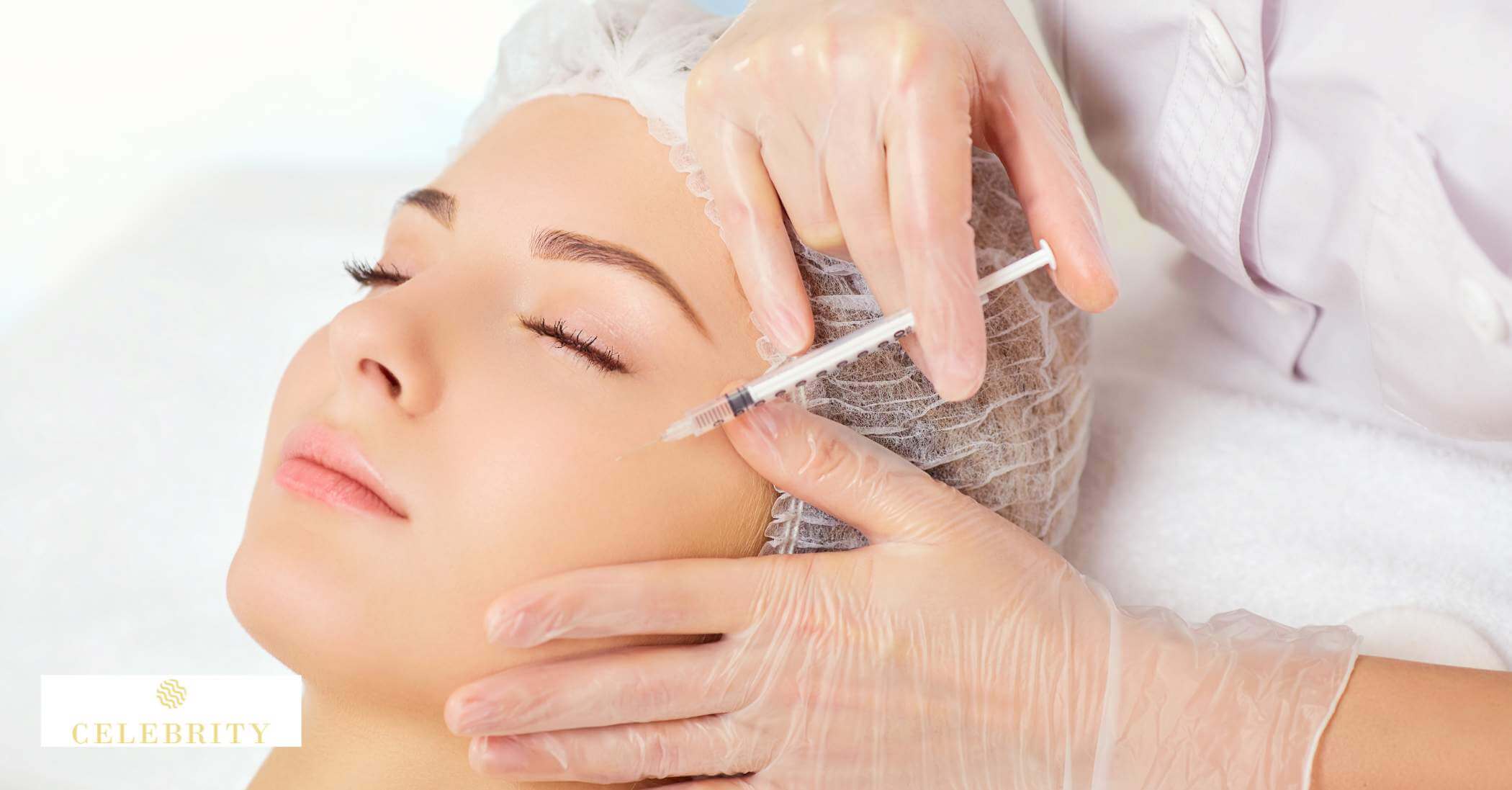In the world of cosmetic injectables, Dysport and Botox are two popular solutions for achieving a youthful, refreshed look. Both work by ‘relaxing’ facial muscles to smooth out wrinkles, though subtle differences in their composition and results may help determine which option is best suited to each individual.
At Celebrity Laser Care, we use the latest technology and techniques to provide personalized recommendations. Whether you’re looking to reduce fine lines or maintain a natural look, our skilled team is here to help you choose the perfect injectable solution tailored to your needs.
What is Dysport?
Dysport is designed to reduce glabellar lines, or the lines between your eyebrows. These lines become more noticeable when frowning, squinting, or even when your face is relaxed. Dysport is intended for people with moderate to severe glabellar lines rather than mild ones. A dermatologist or plastic surgeon can help determine the severity of your wrinkles.
If you’re a candidate for Dysport, the procedure typically takes place in a doctor’s office. To minimize discomfort, your doctor will apply a mild anesthetic before the injections. For treating frown lines, the usual protocol involves injecting 0.05 milliliters (mL) into up to five spots around the eyebrows and forehead.
Dysport: Pros & Cons
Pros:
- Typically less expensive than Botox.
- Often delivers faster results.
- Generally associated with fewer side effects.
Cons:
- Only approved for treating lines between the eyebrows; not effective for other facial wrinkles.
- Tends to spread more than Botox, making it less suitable for small, targeted areas.
- In some cases, Botox may last longer than Dysport, depending on the injection site.

What is Botox?
Like Dysport, Botox is a neurotoxin that relaxes muscles beneath the skin to treat forehead lines, crow’s feet, and vertical lines between the eyebrows. It’s a straightforward procedure done in a doctor’s office, with no need for hospital visits. The effects of Botox typically last around four months, so follow-up injections are needed to maintain results.
The amount of Botox required depends on the area treated. For example, crow’s feet may require 24 units spread over six injections, while glabellar lines (between the eyebrows) may need 20 units across five injections.
Botox: Pros & Cons
Pros:
- Approved for more facial areas than Dysport.
- Effectively targets wrinkles on the forehead, between the eyebrows, and around the eyes.
- Some dermatologists have more experience with Botox, which may increase comfort and precision.
- Remains localized, making it ideal for small, targeted areas.
Cons:
- Typically more expensive per unit than Dysport.
- Results may take longer to appear, which may be a drawback for those seeking immediate results.
- May have a higher likelihood of side effects compared to Dysport.
Who’s a good candidate for Dysport and Botox?
Dysport and Botox injections are suitable for healthy adults aged 18 and older with moderate to severe facial lines. Your doctor will review your medical history and assess your eligibility. You may not be a good candidate if you:
- Are pregnant
- Have a history of sensitivity to botulinum toxin
- Have a milk allergy
- Have a skin disorder
- Have thicker skin (as determined by your doctor)
- Are over 65
- Take certain medications
Some medications, such as blood thinners, muscle relaxers, and anticholinergics (used for Parkinson’s disease), may interact with these injections. Always discuss any medications and supplements you’re taking, including over-the-counter ones, with your doctor before discontinuing any prescriptions.

Treatment Differences
Botox and Dysport share many similarities, but there are a few key differences. Dysport may be slightly less expensive than Botox, though prices vary by provider. While some believe Dysport lasts longer, most doctors find that both treatments generally last about four months.
The formulas for Botox and Dysport differ slightly due to the proteins used. Dysport also spreads a bit more after injection. Additionally, Dysport is FDA-approved only for treating glabellar lines, while Botox is approved for glabellar lines, forehead lines, and crow’s feet.
One notable difference between Botox and Dysport lies in their molecular structure. Dysport has smaller molecules, which allow it to diffuse more easily into surrounding areas after injection. This quality makes Dysport a good option for treating larger areas, as it can cover more surface with fewer injections.
What’s right for you?
If wrinkle creams and treatments haven’t provided the results you want, Botox or Dysport may be a good option. These injectables work best on dynamic lines that appear when frowning or raising your eyebrows. Once lines are visible when your face is relaxed, treatment becomes more challenging, so starting early—in your 30s or 40s—is often recommended.
To choose between Botox and Dysport, consult with your doctor, who can explain the benefits and drawbacks of each. Discuss your specific wrinkle concerns, as everyone’s needs differ. Look for a board-certified specialist in dermatology, plastic surgery, facial plastics, or oculoplastics, as they have specialized training in facial anatomy and cosmetic injectables. Don’t hesitate to ask for before-and-after photos to gauge potential results.
Ultimately, Dysport and Botox can be effective treatments, but trying them doesn’t mean you have to commit long-term. It’s about choosing what makes you feel confident in your appearance.
Conclusion
Choosing between Dysport and Botox depends on your individual goals and the specific areas you’d like to treat. At Celebrity Laser Care, we recognize that every face is unique, and our experienced team is committed to providing tailored recommendations to help you achieve optimal results.
With our advanced technology, skilled professionals, and luxurious environment, you can trust us to deliver exceptional care. Ready to explore the benefits of injectables? Book your consultation today and let us help you look and feel your best.


